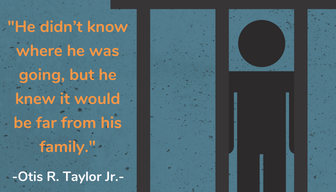San Francisco Chronicle
Otis R. Taylor Jr, Aug. 27, 2018
It was the second time in his life on an airplane, but this time Miguel Villalobos had his arms and feet shackled for the entire trip.
The 38-year-old undocumented immigrant had been locked up at the West County Detention Facility in Richmond since June, after a DUI arrest. On the night of Aug. 16, he was taken from the jail to Oakland International Airport and put on a red-eye flight, along with another 60 federal immigration detainees. He didn’t know where he was going, but he knew it would be far from his family in San Jose.
After two hours, the plane arrived in Colorado. They were driven to the Denver Contract Detention Facility in Aurora.
There, the chains were removed. Later, at around 4 p.m. Aug. 17, Villalobos and the other men were put in a stifling hot room with a single toilet. They were kept there until the early morning hours of Aug. 20, when they were taken out, one by one, for processing.
This is the account given to me by Tess Feldman, a senior immigration attorney for Community Legal Services in East Palo Alto. She has been helping Villalobos fight deportation back to his native Mexico.
Now that he’s 1,200 miles away, she may not be able to continue representing him — and he may have to start his battle against ICE from scratch.
In San Jose, Villalobos was the sole breadwinner of the household he shared with his wife, their 12-year-old son, his stepdaughter and her two children. He had come to the United States in 2000 for a better life. He worked three jobs. His main job was as a daytime restaurant cook. He cooked at another restaurant in the evening for 25 to 30 hours a week. He also collected recyclables.
His wife is a lawful permanent resident who is disabled and can’t work. He was her caregiver. He knows his family is running out of money.
“I don’t know if they’re eating, if they’re not eating,” Villalobos told me in an interview from West County on Aug. 8. “They’ve got to pay the rent, but they don’t have what they need to do that, because I was the only one who was working to support the family there.”
This was the second time Villalobos was jailed. The first time, in 2008, followed a drunken driving arrest, and he eventually was released to his family. In May, he was arrested on another DUI. On June 14, federal immigration officers showed up at his apartment and took him.
Feldman is fuming that U.S. Immigration and Customs Enforcement transferred her client without giving her advance notice.
The federal government filed a motion to change Villalobos’ jurisdiction from San Francisco to Colorado, according to Feldman. According to immigration attorneys I’ve spoken to, the common practice is that attorneys have 10 days to respond to such a motion, but an immigration judge in San Francisco granted the government’s motion on Aug. 22, one day after it was filed.
Feldman told me she wasn’t notified that the motion had even been filed until a day later.
Feldman said it’s now a challenge to represent Villalobos. Because her clients don’t pay fees, she can’t just hop on a plane to Colorado for meetings and court appearances.
“I shouldn’t be forced to find the means to travel around the country anytime immigration decides they want to make a change and not inform me of it in advance,” she said.
When Contra Costa County announced in early July that it was severing its contract with the federal government to hold undocumented immigrants at a jail in Richmond, attorneys and immigrant rights activists scrambled to get detainees lawyers and to secure bail to get them released back to their families.
They thought that if there was an attorney on record it would reduce the chances detainees would be moved before their cases were adjudicated.
They were wrong.
ICE moved all the detainees out of Richmond.
According to an ICE representative, about 60 detainees were moved to Colorado, and approximately 20 were moved to Washington state. Those were the last of the roughly 200 detainees that had been held at the jail.
“When ICE is not allowed to work with local jurisdictions to house detainees closer to their families, friends and attorneys, farther facilities must be utilized,” an ICE representative told me in an email.
Villalobos’ case hits especially close to home for Feldman, because she lives in the same San Jose neighborhood as his family.
“I can’t imagine the stress and the fear that she feels right now,” Feldman said of Villalobos’ wife. “It was incredibly traumatic when Miguel was arrested and detained, and for him to be … moved thousands of miles away without any notice — if I were in her situation, I might feel hopeless.”
San Francisco Chronicle columnist Otis R. Taylor Jr. appears Mondays and Thursdays. Email: otaylor@sfchronicle.com Twitter: @otisrtaylorjr

